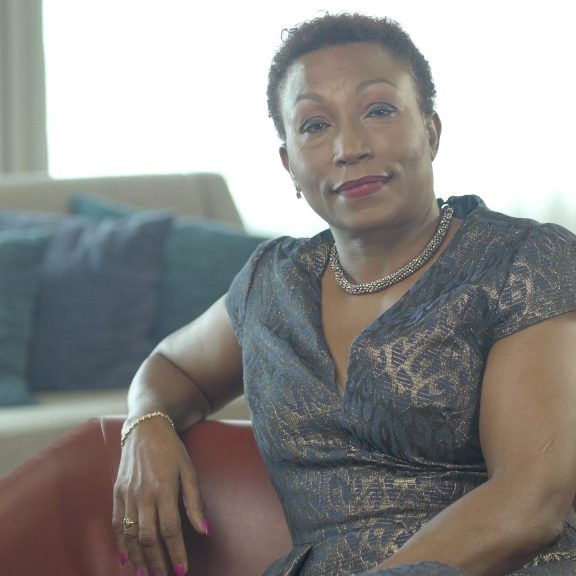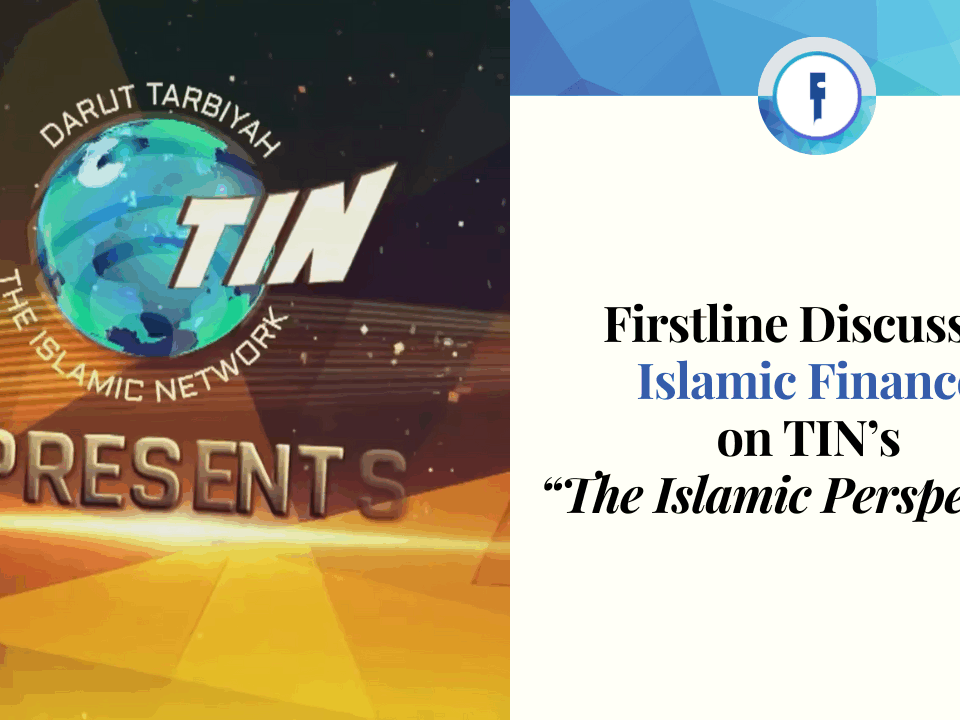Welcome back to the Firstline Securities Blog. Here’s some insight from our head of Wealth Management, Maxine King.
The Social Costs and Benefits of COVID-19
INSIGHTS

The Social Costs and Benefits of COVID-19
“Wake up my people, wake up and give a shout
Wake up my people, know what life’s about and…
Wake up to the needs of all the ones who suffer sorrows
Wake up promise now to do your best to change tomorrow
Wake up my people and open every door
Wake up it’s time now, love my people evermore”
Some of us may be very familiar with the words to that song. A spiritual call to action, a plea to end solipsism, narcissism and selfishness and to be more attentive to the people around us.
The reality is that most of us become so involved in the exigencies of daily life, that we generally neglect the ones around us who are quietly begging for our attention, our support, our generosity. Many of us also neglect ourselves.
Mother Earth has spoken and she is trying to help us along. The coronavirus has re-surfaced in an indiscriminate, invisible, unpredictable form that has brought fear, panic and uncertainty to the entire world. This “Black/White Swan” has wiped out trillions of dollars of the spoils of the wealthy in one fell swoop, ground economies to a halt and rapidly attacked the most vulnerable amongst us.
Though not egalitarian, it has made us all human again since we all now face the same vulnerabilities regardless of locality, ethnicity, religious background, power, wealth. It intends to make us all humble again.
Times like these call for sober reflection as to what is really important and who matters most. For each individual the pecking order will vary but there are similarities which conflate because we live in a society with shared cultural norms, acculturations, appetites and of course, a communal environment.
There is no doubt that this coronavirus will have a monetary and fiscal impact on our individual lives, and on our economy. But what about the social costs? Those unquantifiable costs which significantly impact the underpinnings of our society.
The experts advise that COVID-19 is the third coronavirus that has affected humans after SARS in 2002 and MERS in 2012, and because they do not understand its epidemiology, its immune response and what is scientifically protective, this is why the mitigation method is primarily isolation and social distancing. The truth is that human/animal trials, candidate trials and efficacy trials take a long time before they get to the manufacturing of safe vaccines that will work well in all demographics. Research shows that this can take up to 15 years, 5 years as in the case of SARS, or perhaps 18 months at the very least in the current environment.
Therefore, the need to preserve life remains a Number One priority across the globe and each territory has instituted its own measures to contain the spread of this deadly disease. In so doing, what has come to the fore are significant social realities:
- The poverty levels that we were oblivious to, reliance by so many for governmental support via social assistance, school feeding programmes, disability cheques and the like.
- The virus has introduced a level of anxiety and depression borne out of real and expected displacement due to fear of contraction, business closures, slow-downs, and general uncertainty about the future. Unemployment will bring with it greater exposure to crime and criminality and heightened anxiety disorders, as people find it difficult to cope with rescheduled loans, maxed out credit cards and a general inability to make ends meet.
- Can you imagine the effects of “social distancing” on those of us who already suffer with mental illnesses, the elderly who live alone, the communities who still do not have running water to their homes, the households which rely on remittances from abroad, the retired who rely on social clubs, the deeply religious who need to serve their God at their place of worship, the children who do not have internet access and technology to treat with home study or online teaching?
- Let’s add to that those of us who are victims of persistent domestic and child abuse, incest or even the households with strained relations.
- Food security especially given the need to protect our foreign reserves and the exposures given the broken supply chain, also adds to the anxiety and we have seen much evidence of it in the hoarding and extreme bulk buying that has taken place amongst our citizenry.
- Consider what a protracted virus situation would have on our ability to feed ourselves in the short to medium term. Do we really have enough to feed ourselves without heavy reliance on imports?
- Many of us have neglected our health and well-being, resulting in pre-existing conditions which now put us at greater risk to the virus. Do we have health insurance or contingency funds should the public health institutions overflow or fail us?
“Even in our families, people are waiting
Someone might be crying, waiting hopefully
Wake up to my people, dry their tears of sorrow”
The fact is that the social costs of this pandemic will mount in tandem with the mounting financial costs and losses resulting from closed businesses, pay cuts, job cuts and general inability to make ends meet. This does not mean all doom and gloom as there are also social benefits attached to this situation:
- The distribution of wealth among the wealthy, underserved and the less fortunate must be addressed globally even in the face of pushbacks by the wealthy.
- Philanthropy must become a norm rather than a means of tax avoidance. The moral dilemma of saving lives versus saving costs should narrow, in recognition that our own life expectancy is also now in question. We must be seen as doing the most good for the most people. Materialistic endeavours and love for luxury has forced us all back to the basics: do we have food, do we have water to consume and to cleanse our bodies, do we have medicine to forestall what could be the inevitable?
- The virus has taught us that borders are really farcical. They create a false sense of protection and security. Just look at where and how it spread across borders without visibility. It certainly did not require a visa and a nationality. It came at us all!
- Mother earth is exposing us to how it feels to be suppressed and contained in our own lands, to be exposed to health hazards without protection. It teaches us that we are all equal whether we like it or not. Would some Italians have imagined that black doctors would come to their rescue when historically Italian fans have made international news for jeering and hurling racist taunts at black football players’?
- Mama Earth has decided to teach us all lessons about love for family and home life. Families are now forced to play games and do puzzles and commiserate with each other. She is teaching us about our ability to be agile, to adjust, to be innovative in our thoughts and in our actions.
- She is introducing discipline into our lives, forcing us to remove our egos and our arrogance because of our affluence or our positions of authority. Can you imagine that it took a virus to remind us about basic hygiene, about self-care, about nutrition, about the benefits of soap and water and how much water is a precious commodity that we should not be wasting? We are being taught about the effects of pollution on our environment, about our dislocation of the natural habitat. Recall how the air was cleaned and the swans returned after we were stopped in our tracks.
There is opportunity in adversity. This virus has afforded us the time, the discipline and the patience to commence looking inwardly at what we can do differently for ourselves, our families, our communities and our nations. The coronavirus is teaching us about the need to respect, to support and to cooperate with each other. It is teaching us about true love and understanding and about humility. Suddenly, the most under-recognised people have become so important: the garbage collectors, the cleaners, the grocery workers, the hospital orderlies and the postal workers.
Now is the time to re-design and re-imagine the foundations of our economy. It is the time to give other sectors a chance to flourish; our designers, our film producers, our pan and kaiso artists and our micro enterprises. Now is the time to focus on domestic food production, aquaculture, vertical agriculture, the wire benders and the artists who remain dormant and awake only at Carnival time. Now is the time to show our resilience as a people.
Now is the time for companies to reassess their business models, their organisational structures, how they use technology, their cash management policies, their preparation for contingencies and who and what are their most valuable resource.
Now is the time for us as individuals to focus on what matters most: on the brevity of life, on our preparedness, financial and otherwise, for contingencies and uncertainties. Do we have sufficient savings, insurance and investments to cater for the long-term? Are we treating our neighbours as we would want to be treated? Are we engaging in self-care via good nutrition, exercise, rest and mindfulness? Have we adjusted to what may be the new normal regarding working from home in an honest, disciplined manner which provides value for money?
Ironically, coronavirus’ nomenclature was derived from astronomy, the fact that it has spikes on it, similar in shape to the sun. Whilst it spreads disaster across the world it has also become the shining light that will enable us to change our behaviours, to plan for our future, for contingencies, for uncertainty in a manner that is humane, fair and equitable.


